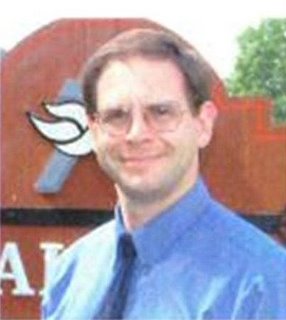 What is your motivation for writing?
What is your motivation for writing?In college I discovered that others enjoyed reading my poems. Soon I was fielding requests and writing custom poetry for people to give as gifts for birthdays, weddings, anniversaries, and other such occasions. I had great fun doing it and it was very satisfying, but I gave it up in order to focus on my career as a computer programmer.
Years later, after that path had played out, I picked up my pen once again. I joined a writer's group where someone suggested I might expand some of my poems into short stories. I discovered that I enjoyed writing those even more than the poetry.
Why do you write Biblical speculative fiction?
I'm new to the genre of Biblical speculative fiction. In fact, had never heard of it until author Frank Creed told me about it and invited me to a group of writers devoted to it. Since I'm always up for expanding my writing experience, I decided to give it a try.
The Christian community has varying opinions on the appropriateness of speculative fiction. Can you explain your take on the compatibility between speculative fiction and your Christian worldview?
I don't see a conflict between speculative fiction and my worldview. There's no "Thou shalt not speculate" rule. I would remind people who think it's inappropriate that it's fiction, not Christian doctrine.
What length of fiction do you prefer to write?
As I said, I really like writing short stories, but some time ago I began work on a historical novel and although it's a lot more work, I'm enjoying every minute of it.
What writing techniques work best for you in terms of character, plot, setting development?
For the novel I found it necessary to create a timeline of events as well as something I call a "people map" which helps me keep track of several generations of the family. It's sort of like a detailed family tree. For my short stories, I don't usually bother writing bios of the characters, but I do keep a list of possible character names. I also keep a folder full of research on various subjects.
Have you had any life experiences that have (positively or negatively) influenced your writing?
Losing my job after seventeen years was a life-changing experience for me as it had been only the second place I'd worked since college. For a while I didn't know what to do with myself, but knew I didn't want to go back to doing the same thing. That event kick-started my writing career.
Any advice for new writers in general? Christian writers?
Don't quit your day job! Seriously, though, don't get caught without a pen and something to write on. Inspiration strikes rather suddenly, and not always when you're sitting around waiting for it. I carry a 5" x 3" notebook which fits in my back pocket. I use it to record facts, ideas, to-do lists, and of course drafts. And make backups! Remember, Jesus saves and so should you. Also, pick up a copy of A.P. Fuchs' book Book Marketing for the Financially Challenged Author.
When do you write?
I don't have a set schedule, but I try to do something every day: read, research, market, improve my website, etc. I often write drafts of stories or chapters while sitting at the coffee shop or the pub. Later I key them into the computer at home.
Do you do any research for your writing?
Due to the historical nature of many of my stories as well as the novel I do a ton of research, mostly online, though I do frequent two libraries. Reference Librarians are wealths of information. I believe writers should always list their sources and give due credit to others who've taken the time to document their findings.
Who do you think would most likely enjoy your fiction?
My fiction tends to appeal to those who enjoy detective stories and stories of the supernatural. I try to write for audiences ranging in age from 13 to 93. I leave out gratuitous sex scenes and unnecessary violence and gore.
Do your stories/ novels have any common themes or threads? Do you try to provide a message for your readers?
Supernatural elements often appear in my work. Very seldom to I write a story with the intent to convey a message. "My Mistake" is one short story that carries an anti-suicide warning, but I generally write to inform and entertain, rather than to moralize or preach.
What can you tell us about "The Waking of the Dead" included in Light at the Edge of Darkness?
When I was writing "An Encounter with a Vampire" I decided I wanted the vampire to speak Greek. Since I don't speak it myself, I put out a request for help in an international community of artists and writers. Ingrid Eskitzi agreed to help and duly translated the vampire's dialogue. Some time later she asked me to write a story for her and the idea for "The Waking of the Dead" was born. After discovering some very strange customs I decided to set the story in 17th century Ireland and give it a hero brave enough to act contrary to those superstitious traditions.
Steve Doyle's website
Steve Doyle at Author's Den


